A big Spread-4
I was writing here on Saturday about the outward signs of a literalness that prevails in comic books. I regard it as a bad thing, in case that isn't clear. Today I'm delving deeper.
I've just found out that there's a wikipedia entry for Death in Comics that looks as though it's as important as the scientific one for Life on Mars. Death in comics, as you probably know, is completely bogus. It is hardly ever 'permanent or meaningful.' You would expect any artist of integrity to say 'Well I certainly won't be contributing to this dishonesty' and sure enough, there's Geoff Johns up near the top saying, 'death doesn't exist in comics the same way it does in our world. I wish death existed in our world as it does in comics.'
Comics operate like soap opera, where every effect is caused and every price must be paid, and what comes next is all that matters. Everything is literal. A death is literally a death. We can't just say, 'oh well, it's only comic books' and resume business as if nothing has happened. The character must be returned for further commercial exploitation, and so the death must be explained away. Comic books being very limited in their range of invention, there are only four ways of getting out of the difficulty. A death must in due course be dealt with by means of a retcon, (the wiki entry gives these instructions believe it or not) a bad dream, mistaken identity or the character is simply replaced by a doppleganger who in every possible respect is the same as the person who is supposedly gone.
Why do characters have to be killed if they are going to be needed again? (you may innocently ask). Cheap fiction demands that the reader should, in the words of Oscar Wilde, 'experience a feeling without having to pay for it.' Thus the reader may wallow in the sentimental excess of suffering a loss without ever losing anything, even a character that didn't exist in any tangible sense in the first place.
Can a fictional death be non-literal? Yes, Kenny's death every week in South Park, not counting the famous thirteenth episode of the fifth season. And of course the author's death, or 'The death of the author' in Eddie Campbell's The Fate of The Artist, in which he is found double-bagged and filed in the permanent collection of the State Library under the number newly allotted to the graphic novel by the Dewey Decimal System. I mean, you knew I wasn't literally dead, didn't you?
I've just found out that there's a wikipedia entry for Death in Comics that looks as though it's as important as the scientific one for Life on Mars. Death in comics, as you probably know, is completely bogus. It is hardly ever 'permanent or meaningful.' You would expect any artist of integrity to say 'Well I certainly won't be contributing to this dishonesty' and sure enough, there's Geoff Johns up near the top saying, 'death doesn't exist in comics the same way it does in our world. I wish death existed in our world as it does in comics.'
Comics operate like soap opera, where every effect is caused and every price must be paid, and what comes next is all that matters. Everything is literal. A death is literally a death. We can't just say, 'oh well, it's only comic books' and resume business as if nothing has happened. The character must be returned for further commercial exploitation, and so the death must be explained away. Comic books being very limited in their range of invention, there are only four ways of getting out of the difficulty. A death must in due course be dealt with by means of a retcon, (the wiki entry gives these instructions believe it or not) a bad dream, mistaken identity or the character is simply replaced by a doppleganger who in every possible respect is the same as the person who is supposedly gone.
Why do characters have to be killed if they are going to be needed again? (you may innocently ask). Cheap fiction demands that the reader should, in the words of Oscar Wilde, 'experience a feeling without having to pay for it.' Thus the reader may wallow in the sentimental excess of suffering a loss without ever losing anything, even a character that didn't exist in any tangible sense in the first place.
Can a fictional death be non-literal? Yes, Kenny's death every week in South Park, not counting the famous thirteenth episode of the fifth season. And of course the author's death, or 'The death of the author' in Eddie Campbell's The Fate of The Artist, in which he is found double-bagged and filed in the permanent collection of the State Library under the number newly allotted to the graphic novel by the Dewey Decimal System. I mean, you knew I wasn't literally dead, didn't you?
Labels: A Big Spread, literlaness
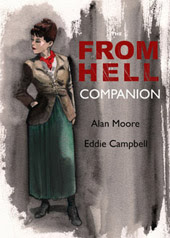
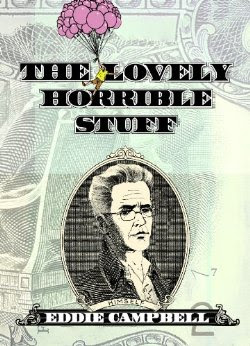

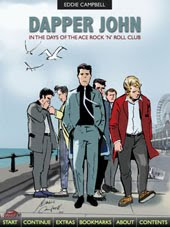
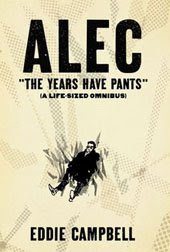
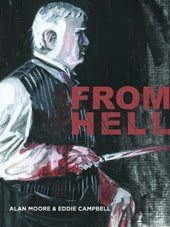
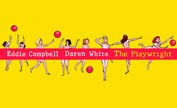
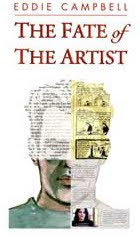

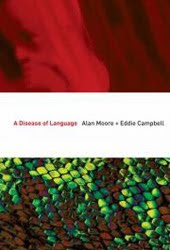

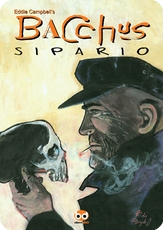
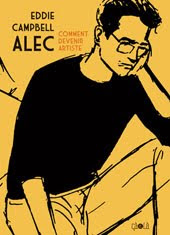

11 Comments:
Some of us were beginning to wonder, but now you're blogging again. Ha ha.
I've always thought that being to literal was a good way to ruin fiction. As long as a character has something interesting to express, he or she can come back as many times as they like, for all I care. Coming back to life may even make them more interesting. Worked for Jesus.
I know I know, I've missed the point.
literalness and the bible is a whole other can of worms.
:)
So, in some fiction death doesn't work like in our world. I guess that's why in that same fiction life doesn't, either.
i always fantasize that krazy kat died and rose again with every ignatz's brick!
I think some of the commenters have missed the point (and one of them thinks so too). The problem isn't the well-established anti-realism of cartoon "death"; the problem is the more recent and already worn-to-shreds pretense of realistically traumatic "death". "The big narrative statement kills; the trademark resurrects." When Elmer Fudd gets sent to Hell, it's not a big narrative statement. When Batman or Aunt May dies (again), it's an Event.
But as I wrote in my Big Harrumph, the conflict between narrative closure and profitable trademark isn't medium-specific: Shakespeare resurrected Falstaff, Doyle resurrected Holmes, and Welles resurrected Lime.
What might be more specific to comics is a kind of childish sadism in which the same toys are tortured to death-or-thereabouts every day: early slapstick comics, 1940s cartoons, Vaughn Bode, "Pibgorn", a tradition in which The Fate of the Artist proudly took its stand. Even there, though, we might place Buster Keaton's more mordant shorts and Moorcock's Jerry Cornelius.
Ray,
I started in on your essay really enjoying it. Then I got a feeling of deja vu, and wait a minute, Ray linked me to this once before. To my surprise, i had forgotten that I turn up in it, and you're quoting me talking about death in comics, and to my chagrin I expressed it better that time, and now I'm feeling like some old codger who is losing his grip. Damn you, Ray Davis!
great piece though.
Eddie
wait, does this mean there is going to be a From Hell sequel where all the prostitutes come back to life?
Ray, I tent to miss Eddie's points on purpose. He's always got loads more information for you, if he thinks you're wrong. Plus, I'm getting cheeky in my old age.
"For all their near-divine grandeur, these comics are literally meaningless when considered as anything but the actuality of what their panels depict."
from Matt Seneca's study of Geoff Johns, 19th July
http://deathtotheuniverse.blogspot.com/2011/07/geoff-johns-best-on-offer-2.html
How existential. *giggle*
Post a Comment
Subscribe to Post Comments [Atom]
<< Home